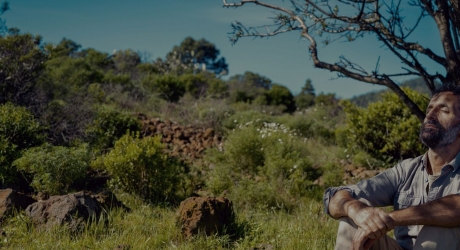The Speaking Tree | February 23, 2016
At one time, favouritism was the order of the day. But, in the present day, competition is said to be the decisive factor in how life progresses. This shift in has been basically due to the advent of democracy because the culture of democracy is meant to be based on merit rather than on favouritism so that if you prove to be competent to do your job, you will be rewarded, otherwise, not. The concept of vested interests being the sole decisive factor is sought to be eliminated, in theory at least.
The present-day culture of competition has given rise to a new social principle with maxims such as 'Compete or perish' and 'Merit-based progress'. In this highly competitive scenario, some people have emphasised that the idea that a competition based system has also produced two different classes - a privileged class and a deprived class. While the privileged class is bound to achieve success, the deprived class will be doomed to lead a life of penury. Activists constantly try to improve the condition of those who are unable to compete. But such action has ultimately proved to be negative in terms of its results, for their particular conception of this dichotomy as being unjust is misplaced.
According to the law of nature, if an individual finds himself in a deprived state, it need not be a full-stop for him; invariably, there are commas all along his future path. And his very sense of deprivation could inspire him to improve his lot in life. One who is said to have "perished" does not in reality perish; instead he stands up with new motivation to establish himself so thoroughly in his chosen sphere that no one will have grounds to belittle or dismiss him. A class made up of such incentivized individuals will ultimately come into being, leaving their state of deprivation far behind them.
There are many historical examples of how motivational factors account for personal progress. For instance, the American business magnate and investor, Bill Gates, said while sharing his experiences, "I failed in some subjects in an exam, but my friend passed in all of them. Now he is an engineer in the organization and I am the owner of that organization." In this statement, an important fact was left undisclosed. This was that when Bill Gates saw that he had lagged behind in competition, he felt strongly motivated - according to human nature - to prepare himself better than before. And then he forged ahead.
People generally take things at their face value and remain ignorant of how nature is at work in the background. For example, if you have a tree in your garden and you cut off one of its branches, you will very soon find that a new branch grows back at the same spot. This is the law of nature, which is applicable to human life also, with this addition - one can take away your first chance but no one has the power to stop you from taking a second or more chances.
Therefore, the formula of 'compete or perish' is not the be-all and end-all of existence. It is simply an ultimatum meant to spur people on to outdo others so that they may succeed in life. If a person has failed in the first instance, he does not necessarily perish, for everyone has the potential to avail of other chances and regain what was lost in the first instance.











